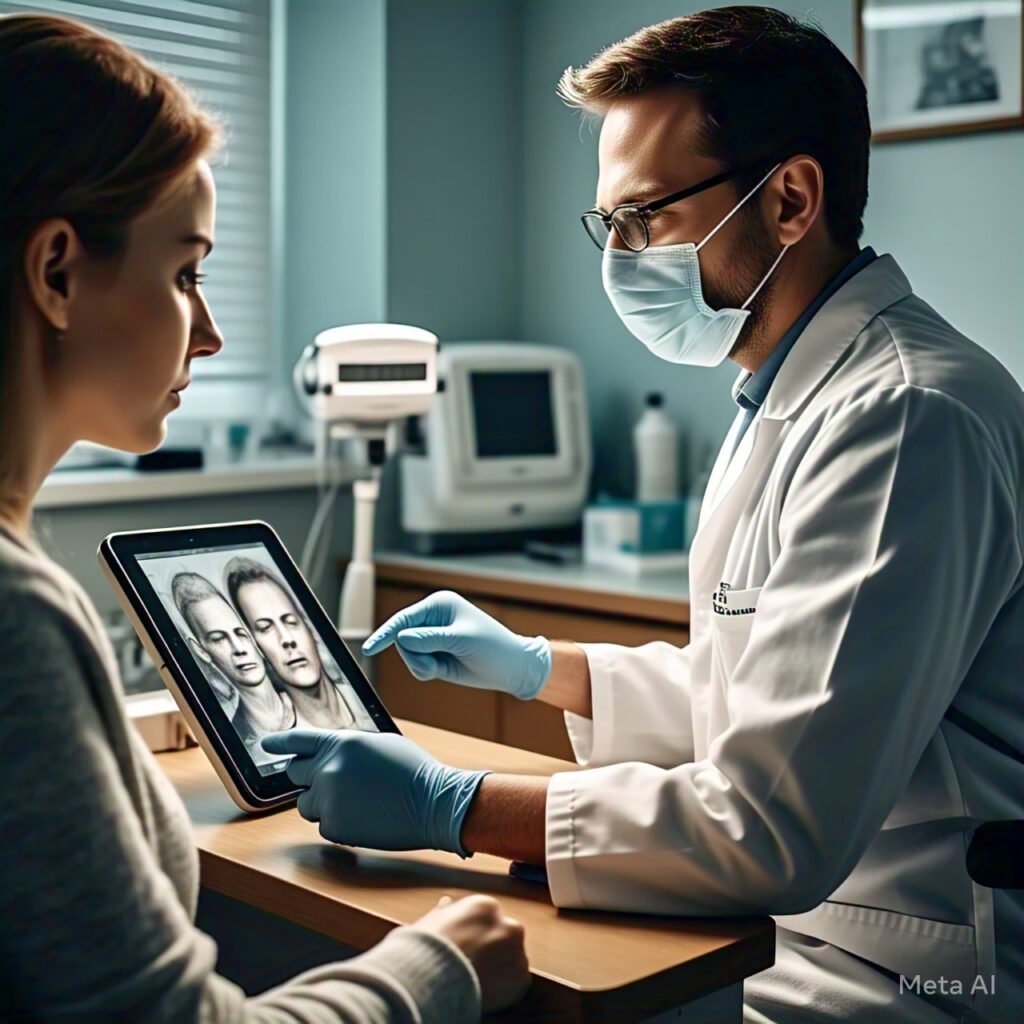The Role of Artificial Intelligence (AI) in Dermatology and Skin Health
Artificial Intelligence (AI) is transforming dermatology by bringing speed, accuracy, and innovation to the prevention, diagnosis, treatment, and management of skin diseases. With the integration of advanced machine learning algorithms and image recognition technologies, AI is supporting dermatologists and improving patient outcomes in several key areas:
- Skin Disease Detection and Diagnosis
AI systems, particularly those using deep learning and computer vision, can analyze dermoscopic images to detect a wide range of skin conditions, including:
Skin cancers (e.g., melanoma, basal cell carcinoma)
Chronic skin diseases (e.g., psoriasis, rosacea, eczema)
Infectious skin conditions (e.g., fungal infections)
These AI tools compare lesion images against massive databases to identify abnormalities with accuracy comparable to or even exceeding that of experienced dermatologists. This is especially useful in early cancer detection, where timely diagnosis is crucial for survival.

- Teledermatology and Remote Screening
AI plays a pivotal role in telemedicine by assisting with virtual skin evaluations. Patients can upload photos via mobile apps, and AI algorithms provide preliminary assessments, helping prioritize which cases need urgent attention and which are low risk. This makes dermatological care more accessible to people in rural or underserved regions. - Personalized Skin Care and Treatment Recommendations
AI-driven platforms can analyze individual factors such as:
Skin type and tone
Medical history
Allergies
Environmental factors (like UV exposure or pollution)
Based on this, AI can suggest customized skincare regimens, product recommendations, or treatments tailored to the unique needs of the patient.
- Tracking and Monitoring Skin Changes
AI-powered tools allow continuous monitoring of skin conditions over time. By comparing images captured at regular intervals, AI can detect subtle changes in moles, lesions, or chronic conditions. This proactive approach helps in:
Evaluating treatment effectiveness
Detecting recurrences
Adjusting management plans
- Research and Clinical Decision Support
AI analyzes large datasets from electronic health records (EHRs), clinical trials, and patient registries to:
Identify new disease patterns and risk factors
Predict patient outcomes
Optimize treatment strategies
This accelerates research, aids drug development, and provides dermatologists with data-backed insights for improved clinical decision-making.
- Patient Education and Engagement
AI chatbots and mobile apps guide patients on how to care for their skin, reminding them about sun protection, hydration, and when to seek professional evaluation. By increasing awareness and education, AI supports preventive dermatology and empowers patients to take control of their skin health.
Future Outlook
With ongoing advancements, AI in dermatology is expected to:

Reduce diagnostic errors
Shorten waiting times for specialist care
Lower healthcare costs
Bridge gaps in global dermatological services
However, challenges like data privacy, bias in algorithms, and the need for regulatory oversight must continue to be addressed to ensure safe and equitable





